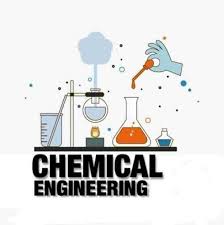Here’s a list of top certifications relevant to chemical engineering professionals:
- Professional Engineer (PE) License: Issued by state boards, this certification is essential for chemical engineers involved in public projects, ensuring they meet educational, experience, and examination requirements.
- Project Management Professional (PMP): While not specific to chemical engineering, PMP certification is highly valuable for managing projects within the field, enhancing leadership and organizational skills.
- Certified Process Safety Professional (CCPSC): Offered by the American Institute of Chemical Engineers (AIChE), CCPSC validates expertise in process safety management, crucial for preventing accidents and ensuring regulatory compliance.
- Six Sigma Certification: Belts such as Green Belt or Black Belt can enhance process efficiency and quality in chemical engineering operations, making professionals more adept at reducing defects and improving outputs.
- Certified Hazardous Materials Manager (CHMM): This certification demonstrates proficiency in managing hazardous materials, essential for chemical engineers working in industries involving potentially dangerous substances.

- LEED Accredited Professional (LEED AP): Valuable for chemical engineers focusing on sustainable practices, LEED AP certification shows expertise in green building design, construction, and operations.
- Certified Industrial Hygienist (CIH): Ideal for chemical engineers concerned with workplace safety, CIH certification focuses on identifying, evaluating, and controlling workplace hazards.
- Certified Energy Manager (CEM): Given by the Association of Energy Engineers (AEE), CEM certification recognizes professionals skilled in energy management, beneficial for chemical engineers involved in energy-intensive processes.
- Certified Environmental Professional (CEP): Offered by the Academy of Board Certified Environmental Professionals (ABCEP), CEP certification demonstrates expertise in environmental science and regulations, vital for chemical engineers in compliance roles.
- Certified Safety Professional (CSP): CSP certification from the Board of Certified Safety Professionals (BCSP) is relevant for chemical engineers focusing on workplace safety and health management systems.
These certifications not only validate specific skills and knowledge but also enhance career prospects and demonstrate commitment to professional development in the field of chemical engineering.
 Clear My Certification All Certification Exam Answers
Clear My Certification All Certification Exam Answers
